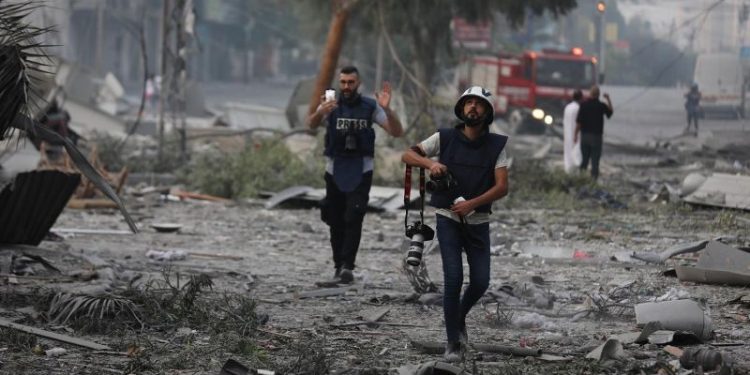Palestinians are documenting the war for millions on social media. Their followers have come to see them as family.
In the age of digital connectivity and social media, the world has become a smaller place. News and information spread rapidly, connecting people from all corners of the globe to events unfolding in real-time. This phenomenon has been particularly evident during times of conflict, such as the recent escalation of violence in the Israeli-Palestinian conflict.
For Palestinians living under the constant threat of violence, documenting their experiences on social media has become a means of survival and a way to share their stories with the world. Through the power of their smartphones, they are able to capture and share both the horror and resilience of their daily lives.
Social media platforms like Twitter, Facebook, Instagram, and TikTok have given Palestinians a voice that reaches far beyond their immediate surroundings. Images and videos posted by Palestinians on these platforms have painted a vivid picture of the hardships they face, from the destruction of homes and infrastructure to the anguish of losing loved ones. These platforms have become virtual battlegrounds where the truth is revealed, challenging mainstream narratives and providing an alternative perspective to the world.
One of the most significant benefits of utilizing social media as a tool for documentation is the ability to bypass traditional media gatekeepers. Palestinians no longer have to depend solely on mainstream news outlets to tell their stories. By becoming their own journalists and storytellers, they can directly appeal to global audiences, creating a sense of urgency and empathy that was previously lacking.
Moreover, social media has allowed for the establishment of virtual communities centered around the Palestinian cause. As Palestinians continue to document their experiences, they have gained a dedicated following of individuals from all walks of life who are eager to bear witness to the reality of the situation. These followers have become more than just passive observers; they have become an extended family, offering emotional support, solidarity, and even material assistance.
The power of social media as a rallying tool for the Palestinian cause cannot be underestimated. The widespread sharing and engagement with their posts have generated international awareness and mobilized solidarity movements around the world. Hashtags like #SaveSheikhJarrah and #GazaUnderAttack have become digital rallying cries, uniting people across borders in the fight against injustice.
However, the use of social media for documentation is not without its challenges. The platforms are often subject to censorship and content moderation, leading to the silencing or removal of posts that are deemed controversial or against community guidelines. Palestinians are no strangers to this, with accounts being suspended or deleted, and important stories being suppressed.
Despite these obstacles, Palestinians continue to document their experiences, knowing that the power of technology and the collective voices of millions cannot be easily dismissed or silenced. Their determination to share their truth has sparked conversations, changed perceptions, and pushed governments to reevaluate their stances on the conflict.
In conclusion, social media has emerged as a powerful tool for Palestinians to document their experiences and share their stories with the world. Through the use of smartphones and various platforms, they have created a global community that supports and amplifies their voices. By bypassing traditional media channels, Palestinians have been able to challenge narratives, generate awareness, and mobilize solidarity movements. As we move forward, it becomes imperative to continue supporting the voices of these online documentarians, ensuring that their stories are heard and that the world does not turn a blind eye to their struggle.

















